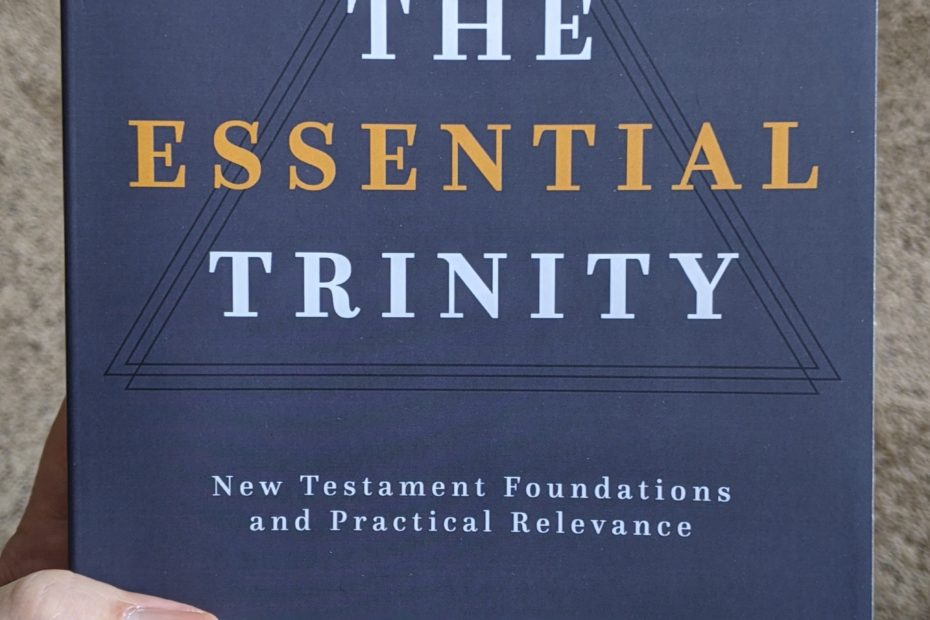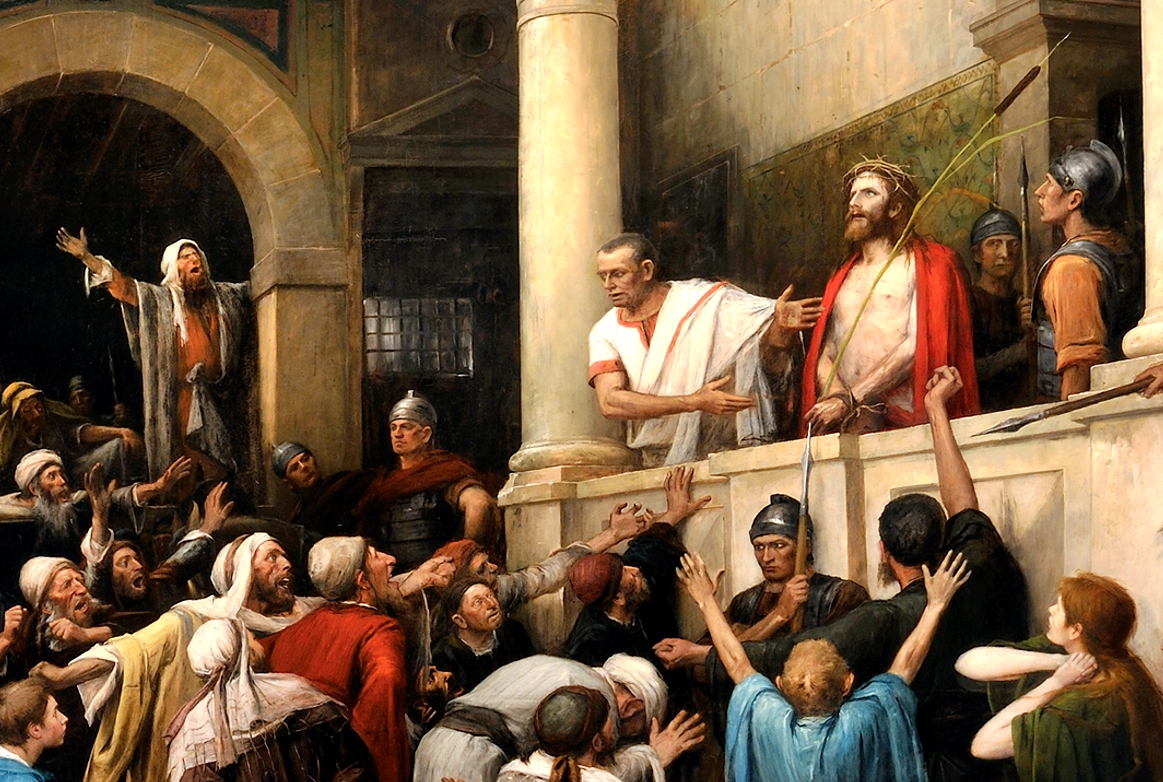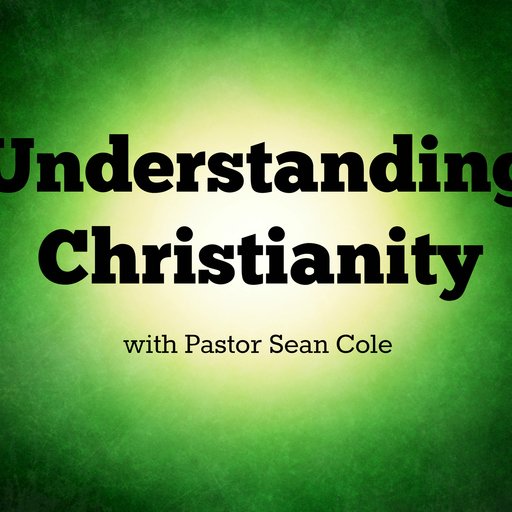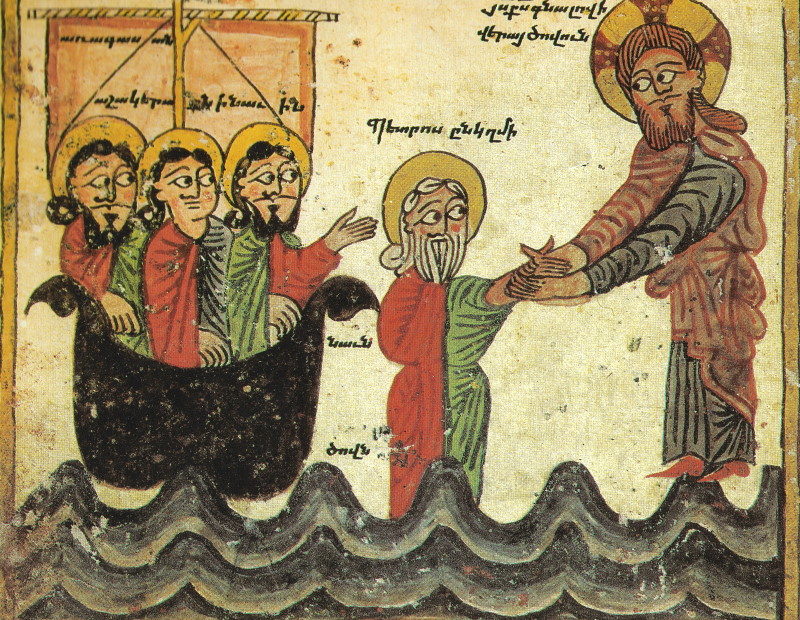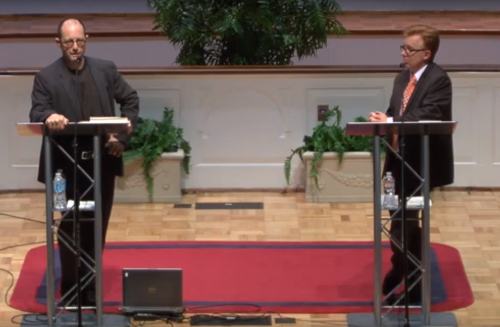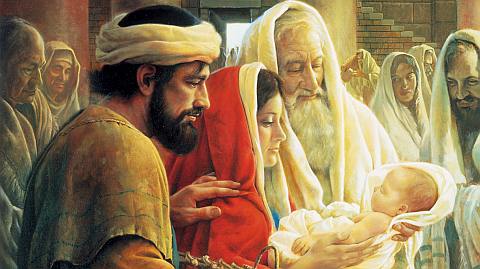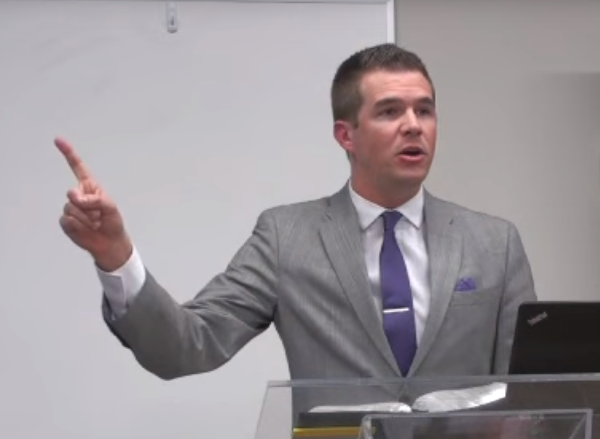Search Results for: Essential to the gospel, according to Luke
podcast 188 – Dr. Paul W. Newman’s Spirit Christology – Part 2
“Then Jesus, filled with the power of the Spirit, returned to Galilee… He began to teach in their synagogues and was praised by everyone.”
podcast 70 – The one God and his Son according to John
In my view, the fourth has been the most misunderstood gospel.
a real scholar on the so-called “Lost Gospel”
Leading scholar Dr. Richard Bauckham has done a public service by chewing thoroughly through the “Lost Gospel”: Dr. Mark Goodacre has posted Dr. Bauckham’s article(s) here. Let’s just say, he determines that it is all bun and no meat. A few teasers: They seem to be proposing a unique genre of ancient literature. Why should we believe them? It seems to be simply a way of getting… Read More »a real scholar on the so-called “Lost Gospel”
podcast 306 – Two Readings of Mark – popular or esoteric? – Part 2
Does the Gospel According to Mark contain as hidden messages the deity of Christ and the Trinity?
podcast 36 – Interview with Dr. Bart Ehrman about his How Jesus Became God – Part 2
Is the author of John confused about Jesus and God? Does he think that two different beings – the Father, and the man Jesus – are numerically the same as the one true God? Some people think so; putting it gently, they talk of the “tensions” (=apparent contradictions) in the book. But is this author that confused? Again, some think that John makes Jesus qualitatively… Read More »podcast 36 – Interview with Dr. Bart Ehrman about his How Jesus Became God – Part 2
podcast 380 – Dr. Dustin Smith on Wisdom Christology in the Gospel of John
A new book on the portrayal of Jesus in the Gospel According to John.
podcast 176 – Photinus of Sirmium
His views seem to have been those of present-day biblical unitarians.
podcast 62 – Dr. Dustin Smith on the preexistence of Jesus in the gospel of John
Does the fourth gospel teach that Jesus existed long before his conception, even before the creation of the cosmos? Most readers think so. But in this episode Dr. Dustin Smith argues that rightly understood, this gospel neither assumes nor teaches that Jesus “preexisted,” that is, existed before he was a human. He argues that we should read the gospel according to John in light of… Read More »podcast 62 – Dr. Dustin Smith on the preexistence of Jesus in the gospel of John
podcast 284 – Does the Bible Teach that God is a Trinity? Cole-Tuggy Dialogue – Part 3
Does the famous “Great Commission” passage at the end of Matthew teach that the one God is a Trinity?
Did Jesus have faith in God?
“It’s stunning; there is nothing in the Bible that says Jesus had faith.”
podcast 327 – Dr. Licona’s historical case that Jesus considered himself to be God – Part 2
Can we establish on historical grounds that the historical Jesus thought that he was God?
podcast 128 – Ehrman and Bird on How Jesus Became God – Part 1
In this episode I review the first portion of a recent debate/discussion between Dr. Bart Ehrman and Dr. Michael Bird, held at the at the 2016 Greer-Heard Point Counter Point Forum in February 12-13, 2016 at the New Orleans Baptist Theological Seminary.
podcast 118 – The Son of God 2 – Mr. Danny Andre Dixon’s “Arian” view of Jesus
Many Christians in the 2nd to the 4th centuries, and many since, have read the famous opening of the gospel according to John like this: In the beginning [i.e. at the Genesis creation, but not necessarily before] was the Word [i.e. the pre-human Jesus], and the Word was with God [i.e. the Father], and the Word was divine.
Simeon says…
Who was born on the first Christmas? According to Luke, God revealed this information to a Jewish prophet named Simeon: Now there was a man in Jerusalem whose name was Simeon; this man was righteous and devout, looking forward to the consolation of Israel, and the Holy Spirit rested on him. It had been revealed to him by the Holy Spirit that he would not see… Read More »Simeon says…
Did Jesus have faith in God? – Part 1
In “How Jesus’ Not Having Faith In God Affirms His Deity” at the Thinking Christian blog, Tom Gilson argues that the New Testament, by not teaching that Jesus had faith in God, implies that Jesus is God himself. Thus, even the synoptic gospels implicitly teach that Jesus is God. Here, I’ll comment on his first post in the series; next time, his second post. In… Read More »Did Jesus have faith in God? – Part 1
podcast 299 – Does the New Testament teach Trinity Monotheism? – with Dale Glover – Part 1
A conversation about whether or not the New Testament teaches “Trinity Monotheism.”
podcast 320 – Thoughts on my debate with Rogers about Mark – Part 2 – interpretive fails
Adventures in theologically-motivated misinterpretation.
podcast 136 – Dr. Dustin Smith on debating Jesus’s preexistence
This time, Dr. Smith’s thoughts on the debate. He argued for the minority view that the New Testament doesn’t teach Jesus’s literal pre-human existence.
SCORING THE BURKE – BOWMAN DEBATE – Round 4 Part 1
 In this post I venture to offer some debate advice: be very hesitant to accuse your opponent of a logical fallacy.
In this post I venture to offer some debate advice: be very hesitant to accuse your opponent of a logical fallacy.
- First, your lack of sympathy for his position can easily cause you to be see ones which are not really there.
- Second, it is often unclear whether or not the dude is actually making an error in reasoning – begging the question is particularly tricky to diagnose, for instance, and some of the “flags” I’ve thrown in judging previous rounds are debatable.
- Third, there is a temptation to quickly allege a fallacy rather than dealing with the truth or falsity of your opponent’s premises. (This can verge on making an ad hominem fallacy yourself.)
- Fourth, you may be tempted to make up a new sort of error in reasoning new for the occasion, and accuse your opponent of it.
In round 4, Burke makes the 3rd error, Bowman the 4th.
Burke argues,
Even Acts 5, where the apostle Peter accuses Ananias of “lying to the Holy Spirit” (verse 3) and his wife of trying to “test the Spirit of the Lord” (verse 9) is not an open and shut case. The usual argument made from this passage is that Peter accuses Ananias of “lying to the Holy Spirit” and Sapphira of trying to “tempt the Holy Spirit”; but since an impersonal power cannot be lied to or tempted, the Holy Spirit must therefore be a person and therefore it follows that the Holy Spirit is God. The logic here is not terribly good, and the argument ends with a non sequitur.
Neither this nor what follows it make clear what Bowman’s errors in reasoning are supposed to be. What exactly is the argument he’s criticizing? Is it this?Read More »SCORING THE BURKE – BOWMAN DEBATE – Round 4 Part 1




